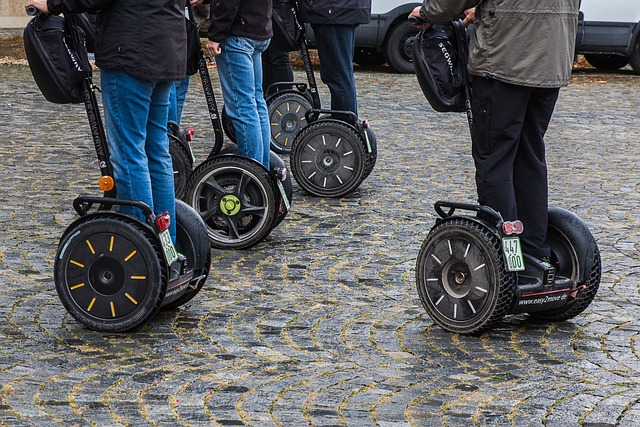5 Sustainable Travel Practices for Eco-Conscious Explorers
Discover how to make travel more eco-friendly and sustainable with these five essential practices. From reducing waste to supporting local economies, this guide helps you make mindful choices that benefit both the environment and the communities you visit.
Exploring the world responsibly is no longer just a trend; it’s a commitment for the modern traveler. Embracing sustainable travel practices not only allows us to reduce our environmental impact but also enriches our travel experience, helping us connect more deeply with the destinations we love. Here are the first three ways to make your travels more eco-conscious.

1. Choose Environmentally Friendly Transportation
One of the most impactful decisions you can make for sustainable travel begins before you even arrive at your destination. Transportation is one of the largest contributors to carbon emissions in tourism, but you can make choices that significantly reduce your environmental impact.
Opt for Greener Alternatives: Whenever possible, select transportation options with lower emissions. Trains, for example, are often a much more eco-friendly choice than flights, especially for short to mid-range travel. By opting for a scenic train route, you not only reduce your carbon footprint but also enjoy a unique, slower travel experience. In Europe and parts of Asia, high-speed trains offer a convenient and comfortable way to get from one city to another without the hassle of airports.
Reduce Air Travel or Fly Responsibly: While flying may be unavoidable for long-distance travel, there are ways to reduce your impact. Choose direct flights to minimize emissions from takeoffs and landings, which are the most fuel-intensive stages of a flight. Some airlines also provide the option to offset your carbon emissions. Although carbon offsets aren’t a perfect solution, they support projects that help to counterbalance the environmental impact of air travel.
Utilize Public and Human-Powered Transport: Once at your destination, embrace local public transportation, such as buses, trams, or subways, which are often more sustainable than car rentals. Even better, consider renting a bike or exploring on foot. Not only does this reduce emissions, but it also allows you to experience a place in a more intimate and authentic way. Cycling or walking tours offer opportunities to see hidden gems and interact with locals, making your journey both eco-friendly and memorable.
2. Choose Eco-Conscious Accommodations
Where you stay can greatly impact your environmental footprint. Fortunately, many hotels and lodgings are now committed to sustainable practices that minimize waste, conserve water, and reduce energy consumption. By choosing eco-conscious accommodations, you can make a positive impact without sacrificing comfort.
Research and Support Eco-Friendly Hotels: Look for certifications like Green Key, EarthCheck, or LEED, which indicate that a hotel follows sustainable practices. These certifications often require hotels to meet strict criteria in waste management, water conservation, energy efficiency, and community engagement. Eco-friendly hotels often use renewable energy, such as solar panels, and implement waste reduction strategies, including recycling and composting.

Consider Eco-Lodges or Homestays: Eco-lodges, typically located in rural or nature-rich areas, offer a sustainable alternative to traditional hotels. These lodges are often designed to blend harmoniously with their surroundings and have a strong focus on environmental conservation. Staying in an eco-lodge or a locally owned homestay also directly supports the local economy and encourages the preservation of cultural traditions. Many of these accommodations are built using sustainable materials, employ local staff, and engage guests in conservation and community activities, adding a meaningful layer to your travel experience.
Practice Sustainable Habits During Your Stay: Even in an eco-friendly accommodation, your habits play a big role in reducing environmental impact. Avoid unnecessary housekeeping services, such as daily towel or sheet changes, which consume extra water and energy. Additionally, be mindful of your energy use by turning off lights, heating, or cooling when not needed, and conserving water wherever possible.
3. Pack and Travel Light
The amount and type of luggage you carry not only affects your travel comfort but also has environmental consequences. Packing mindfully and reducing excess can help you travel in a more eco-conscious way.
Choose Reusable and Eco-Friendly Essentials: Rather than purchasing travel-sized toiletries in plastic containers, consider investing in reusable containers or solid products like shampoo bars. Bring a reusable water bottle, utensils, and shopping bag to avoid single-use plastics. Many places around the world are banning or reducing plastic use, so carrying your own reusable items not only aligns with local practices but also reduces plastic waste at your destination.
Minimize Clothing and Electronics: Airlines use more fuel for heavier loads, meaning that the weight of your luggage has a direct impact on carbon emissions. Pack versatile clothing that you can layer and mix, allowing you to pack lighter and avoid the need for multiple outfits. Similarly, limit the number of electronic devices you bring along, as they often require chargers and adapters that add weight and consume energy. The less you pack, the lighter your footprint.
Leave No Trace: Following the principles of “Leave No Trace” means minimizing the impact you have on the natural environment. This includes not disturbing wildlife, avoiding picking plants, and ensuring you take back all waste with you. Carry a small bag to keep your trash or recyclables if you’re exploring areas without disposal options. By traveling light and responsibly, you help to preserve the destination for future generations of travelers.
Continuing on the journey toward more sustainable travel, here are two more essential practices that empower travelers to make a positive impact on the world around them.
4. Support Local Economies and Respect Cultures
Tourism can be a powerful tool for economic growth, especially in developing regions, but it’s important that travelers support local businesses and engage with communities respectfully. By doing so, you contribute to the local economy while fostering genuine cultural exchanges.

Shop and Eat Locally: Supporting local businesses, from family-owned shops to local markets, helps stimulate the local economy and allows you to experience authentic products and flavors. Look for souvenirs made by local artisans rather than mass-produced goods, as they often have a story behind them and contribute more directly to the community. Dining at local restaurants or street food stalls, instead of large international chains, not only enhances your culinary experience but also reduces the environmental footprint associated with imported foods.
Participate in Community Tourism: Community-based tourism initiatives, such as guided village tours, cooking classes, or cultural workshops, give travelers a deeper understanding of local customs while directly benefiting residents. These experiences are often run by locals who are passionate about sharing their heritage, making it a more meaningful exchange for both parties. In many places, community tourism programs also promote conservation efforts, turning tourism into a force for preserving both nature and culture.
Be Respectful and Mindful of Local Customs: Every destination has its unique customs and etiquette, and respecting these shows cultural sensitivity and appreciation. Learning a few basic phrases in the local language or understanding the dress code for specific places like religious sites can go a long way. By approaching interactions with humility and curiosity, you can connect with locals more genuinely and avoid inadvertently causing offense.
5. Conserve Nature and Choose Eco-Friendly Activities
Outdoor activities are often a highlight of travel, allowing us to connect with nature in unforgettable ways. Yet these experiences should be approached thoughtfully, with a focus on minimizing environmental impact and preserving ecosystems.
Engage in Low-Impact Activities: Choose activities that have a minimal environmental footprint, such as hiking, snorkeling in protected areas, bird-watching, or kayaking. These pursuits allow you to enjoy nature without causing harm to the ecosystem. Make sure that any tour operator you choose adheres to sustainable practices, including respecting wildlife and natural habitats. Avoid activities that exploit animals, such as elephant riding, as these can have detrimental effects on animal welfare.
Practice Responsible Wildlife Viewing: While witnessing animals in their natural habitat can be a magical experience, it’s crucial to do so responsibly. Observe animals from a distance to avoid disturbing them, and avoid feeding or touching wildlife, as it can disrupt their natural behavior. Some tour operators are certified in eco-friendly wildlife practices, such as the Global Sustainable Tourism Council or the Wildlife Friendly Enterprise Network, which ensures they prioritize animal welfare and conservation.
Support Conservation Efforts: Many destinations have conservation programs or non-profit organizations dedicated to protecting their natural habitats. By donating a portion of your travel budget or participating in eco-volunteering, you contribute to the preservation of these precious ecosystems. Some travelers even choose to join conservation projects as part of their itinerary, participating in beach cleanups, coral reef monitoring, or tree-planting activities that leave a lasting impact on the places they visit.
Embracing these five sustainable travel practices doesn’t mean giving up the joy of exploration; rather, it enhances the travel experience by fostering a deeper connection with our planet and the people we encounter. By making conscious choices, eco-conscious explorers can ensure that future generations have the opportunity to experience the wonders of our world in all their natural beauty.

